

|
Two of the new books introduced in this issue present historical perspectives on certain aspects of Sri Aurobindo’s work for India in the first half of the twentieth century. The first, Sri Aurobindo and the Cripps Mission, is concerned with a specific event: the Cripps Mission to India in 1942. It was at the particularly critical point in the Second World War when Britain had lost Hong Kong, Rangoon, and Singapore to the Axis powers, and Japan threatened India’s very borders. The British Government wanted India to participate in the war effort and sent Sir Stafford Cripps with a proposal for the Indian leaders: India would get dominion status in exchange for its help in the war and that status would eventually become fully self-governing. Sri Aurobindo, who was living in seclusion at that time, took the unique step of publicly supporting the Cripps proposals and even sent an emissary to New Delhi to press the Indian leaders to accept the offer. Sri Aurobindo and the Cripps Mission tells the story of the Cripps Mission through excerpts from the writings of Sri Aurobindo and the Mother, essays and articles by their disciples, and extracts from official documents and from personal letters and diary entries of those involved. It also includes background information on Sir Stafford Cripps, a liberal Minister in Churchill’s Cabinet who was known to be sympathetic to the Indian national movement. The editor has added a few of her own essays and set everything in sections that present the points of view of Sri Aurobindo, the Indian leaders, and the British. In the first section there is an extract from Sisir Kumar Mitra’s book The Liberator—Sri Aurobindo, India and the World. Here we discover some of the reasons why Sri Aurobindo supported the Cripps proposals:
The second book looks at the events in Sri Aurobindo’s life during his stay in Bengal from 1906 to 1910. Smriti Tirtha revisits the locales where these events took place, such as 12 Wellington Square, the residence of Raja Subodh Chandra Mallik in Calcutta, described by the author as Sri Aurobindo’s revolutionary headquarters. Similarly, there are chapters on the National College in Boubazar Street, where Sri Aurobindo acted as the principal, on the Serpentine Lane house, home of Sri Aurobindo’s father-in-law, Bhupal Chandra Bose, where Sri Aurobindo recovered from a serious illness in 1906, and on the Scott’s Lane house where Sri Aurobindo lived for a few months in early 1907 with his wife, his sister, and the young man Abinash Bhattacharya, who looked after the domestic arrangements at the house. Abinash’s writings bear witness to Sri Aurobindo’s life during those days:
Sri Aurobindo not only wrote the lead editorials for the Bande Mataram, he was also concerned with the management of the newspaper. We see another side of his character in his focus on business matters in this extract from an undated memo by him:
Smriti Tirtha brings many such details to light, drawing from a variety of sources and first-hand accounts. The second half of the book describes Sri Aurobindo’s arrest from the house on Grey Street, his imprisonment in Alipore Jail, his trial and acquittal, and how he eventually left Bengal for Pondicherry on 1 April 1910. The study of history fascinates us because we can watch events as they happened in time. We become spectators in a drama, wanting to know more about the persons involved and to understand the dynamics of the changes brought about. Well-told stories prompt us to think about the human experience in other times and places. Two articles from our print newsletter Recent Publications were widely appreciated because they provided that sense of an intimate connection to the past. The first dates back to our December 2008 issue and tells the story of the Ashram Main Building through the recollections of sadhaks who witnessed the events and changes that occurred in and around the compound. In that article we heard from Tara-ben Patel, who came to settle here when she was eighteen years old and took up the work of cooking in the kitchen which was then located in the centre of the main courtyard. We remember Tara-ben who was in her hundredth year when she passed away this June. [Click here to read the article titled “The Story of the Ashram Main Building”.]
And to conclude, we draw attention to the new title in Turkish, a translation of Sri Aurobindo’s The Supramental Manifestation Upon Earth and thirteen of his short poems and sonnets. Notably, this is the first time that Sri Aurobindo Ashram has published a book in Turkish. | |||||||||||||||||||||||||||||||||||||||||||||||||||||||||||
|
| |||||||||||||||||||||||||||||||||||||||||||||||||||||||||||
ENGLISH | |
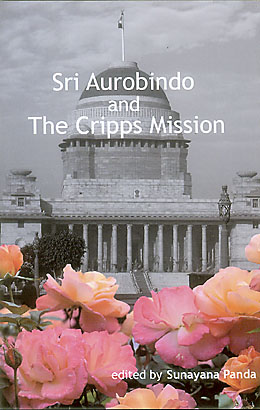 | Sri Aurobindo and The Cripps Mission
— Essays and articles by various authors |
Several strands of narrative documentation are woven into this account of the Cripps Proposal, a significant attempt at intervention by the British Government during the Second World War that offered dominion status in exchange for India’s cooperation and collaboration in the allied war effort. Quotes from the works of Sri Aurobindo and the Mother and passages from the writings of several of their disciples reveal the steps Sri Aurobindo took – and the reasons he took them – to convince the Indian leaders of the day to accept the proposal. Extracts from official documents and from personal letters and diaries highlight first the viewpoints of the Indian leaders and then of the British, helping the reader to understand why the proposal was not accepted. | |
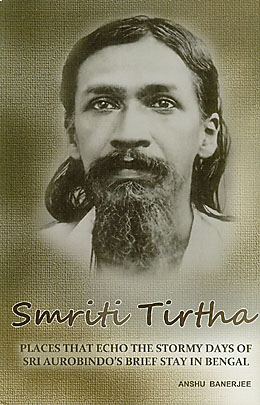 | Smriti Tirtha
Places that Echo the Stormy Days of Sri Aurobindo's Brief Stay in Bengal |
Through chapters based on the locales in Bengal where the dramatic events in Sri Aurobindo’s life played out, this book draws the reader back to the years 1906 to 1910, when Sri Aurobindo was at the centre of the freedom movement. Using multiple sources and first-hand accounts, the story is rich with details of the life and activities at such locations as 12 Wellington Square, Sri Aurobindo’s revolutionary headquarters, the National College at Boubazar Street where Sri Aurobindo acted as principal, the office of Bande Mataram at Creek Row, the house on Grey Street from where he was arrested in April 1908, Alipore Jail, the Sessions Court where he was acquitted, and Chandernagore, his place of seclusion before he departed for Pondicherry. | |
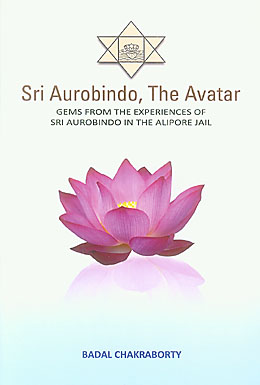 | Sri Aurobindo, The Avatar
Gems from the Experiences of Sri Aurobindo in the Alipore Jail |
This booklet examines a few of the spiritual experiences that Sri Aurobindo had during his year in the Alipore Jail, as described by him in his speech at Uttarpara shortly after his release. The author uses portions of the speech as a springboard to provide an overview of the teachings of Sri Aurobindo and the Mother and to call for a renewed dedication to their vision of a divinised life on earth. | |
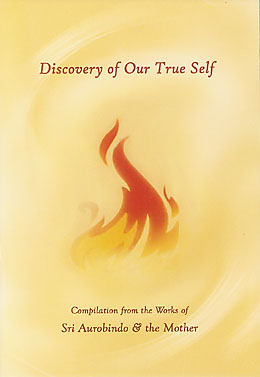 | Discovery of Our True Self
— Compilation from the Works of Sri Aurobindo and the Mother |
| |
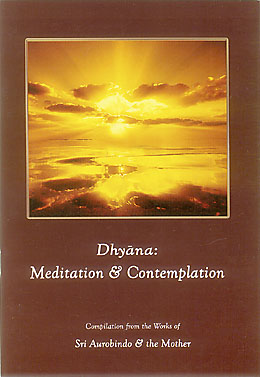 | Dhyana: Meditation and Contemplation
— Compilation from the Works of Sri Aurobindo and the Mother |
| |
TURKISH | |
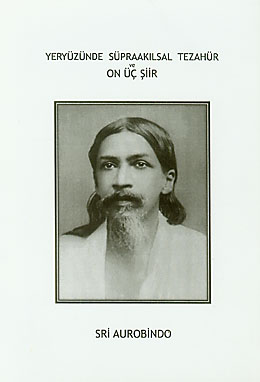 | Yeryüzünde Süpraakilsal Tezahür ve On Üç Siir
— Sri Aurobindo |
This book is a translation of Sri Aurobindo’s The Supramental Manifestation Upon Earth and thirteen of his short poems and sonnets. The Supramental Manifestation Upon Earth is a series of eight essays, his last prose writings, written in 1949 and 1950 for publication in the quarterly Bulletin of Physical Education (at present called the Bulletin of Sri Aurobindo International Centre of Education). They reveal a vision which includes the perfection of the body as an instrument of the action of the spirit, the nature and structure of a divine body and the conditions and operations of its life on earth, the manifestation of a supramental truth-consciousness as the basis for a divine life upon earth, and the creation of a new humanity possessed of a mind of light. The thirteen poems and sonnets translated into Turkish are: Invitation, Who, To the Sea, The Triumph-Song of Trishuncou, What is this talk, To weep because a glorious sun, God, The Fear of Death, I have a hundred lives, Transformation, Nirvana, Vast-winged the wind, A God’s Labour. | |
HINDI | |
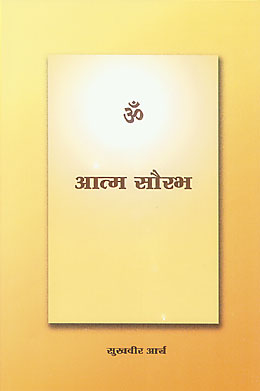 | Atma Saurabh
— Sukhvir Arya |
| |
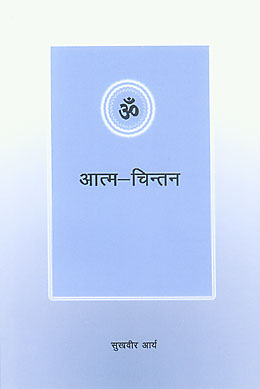 | Atma-Chintan
— Sukhvir Arya |
| |
GUJARATI | |
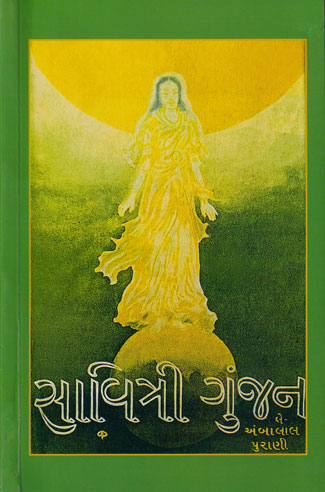 | Savitri Gunjan
— Ambalal Purani |
| |
ASSAMESE | |
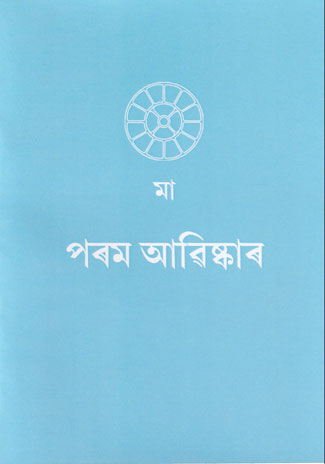 | Param Avishkar
— Ma |
Assamese translation of The Supreme Discovery Written in 1912, this inspiring piece encourages the spiritual seeker to discover within himself the realisation that each particle of matter contains a divine spark, that each being carries within him the transcendent love that can lift his consciousness to the heights. Its message of hope and solace has special relevance to those who are assailed by difficulties on the path. | |
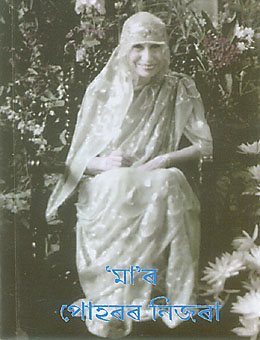 | Maar Poharor Nijara
— Madhav Pandit |
| |
You have received this as a subscriber to SABDA eNews. To unsubscribe, click here. To view previous issues of SABDA eNews, visit our Newsletters page.
|